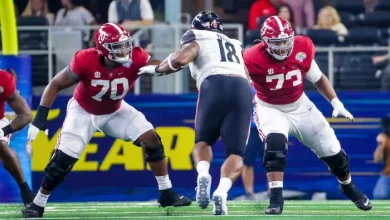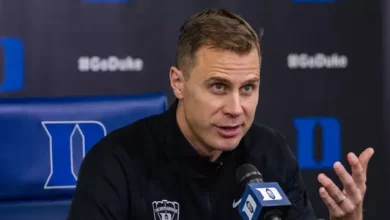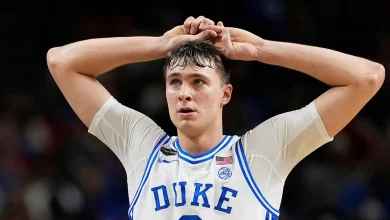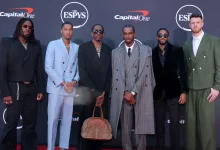Edmonton Oilers face a big hole without Hyman, but their strong depth and resilience make them ready for the challenge.

The Edmonton Oilers have been a dominant force in the NHL in recent years, boasting a star-studded lineup led by Connor McDavid and Leon Draisaitl. However, the team recently faced a significant setback with the loss of forward Zach Hyman, a key contributor known for his grit, energy, and two-way play. While Hyman’s absence leaves a notable void, the Oilers’ organizational depth and resilient roster give them confidence to adapt and continue their pursuit of NHL success. This article explores the impact of Hyman’s departure on the Oilers, how the team’s depth is positioned to step up, and the overall outlook for Edmonton’s 2025 season.
The Role and Importance of Zach Hyman
Zach Hyman has been an integral part of the Oilers since signing with the team in 2021. Known for his relentless forechecking, defensive responsibility, and ability to chip in offensively, Hyman quickly became a fan favorite and an essential cog in the Oilers’ lineup. His ability to win puck battles along the boards, create second-chance opportunities, and support star players on scoring lines added a valuable dimension to Edmonton’s game.
Moreover, Hyman’s work ethic and leadership qualities resonated throughout the locker room. He brought a balance to the lineup, often tasked with shutting down opposing top lines and playing in crucial defensive situations. His contribution extended beyond the scoresheet, embodying the gritty, hard-nosed style that the Oilers needed to complement their high-powered offense.
The Impact of Losing Hyman
Losing Hyman leaves a “big hole” in Edmonton’s forward group, both figuratively and literally. His unique combination of skill, physicality, and defensive acumen isn’t easily replaced. Here’s how his absence impacts the Oilers:
- Depth on the Wing: Hyman’s departure reduces the Oilers’ reliable depth at wing, especially on the checking and penalty-killing units. His role as a shutdown forward will need to be redistributed among teammates.
- Line Chemistry: Hyman’s chemistry with linemates like Connor McDavid was a key factor in creating scoring chances and maintaining puck possession. Adjusting to new line combinations will require time and adaptation.
- Leadership Void: Beyond on-ice skills, Hyman’s leadership and professionalism were vital in the dressing room, especially for younger players transitioning into bigger roles.
Despite these challenges, the Oilers have a plan — their organizational depth is well-stocked with players ready to rise to the occasion.
Edmonton’s Depth: Players Ready to Step Up
The Oilers’ strength lies in their ability to lean on their depth, which has been a hallmark of their recent roster construction. Multiple players are poised to fill the gap left by Hyman’s absence, ensuring the team remains competitive.
1. Warren Foegele
Warren Foegele, known for his tenacity and two-way play, is a prime candidate to take on increased responsibility. Foegele has previously demonstrated the ability to play against tough competition and contribute both offensively and defensively. His speed and forechecking make him an effective replacement on the wing, especially in defensive-zone faceoffs and penalty kill situations.
2. Ryan McLeod
Ryan McLeod, a versatile forward with solid hockey IQ, has steadily developed into a reliable NHL player. His capacity to play center and wing, coupled with strong defensive awareness, makes him a valuable asset. McLeod’s physicality and hustle will help maintain the Oilers’ aggressive style without sacrificing defensive integrity.
3. Kailer Yamamoto
Kailer Yamamoto offers a dynamic offensive skill set with quick hands and creativity. Though less known for defensive play than Hyman, Yamamoto’s ability to create scoring chances can inject energy into the lineup. With proper coaching and adjustment, Yamamoto can balance offensive firepower with increased defensive responsibility.
4. Colton Sissons
Veteran forward Colton Sissons brings experience and versatility. His solid two-way game and faceoff skills can help stabilize the forward group. Sissons’ ability to play multiple forward positions makes him a valuable puzzle piece in various line combinations and special teams units.
5. Jesse Puljujärvi
Jesse Puljujärvi, after an up-and-down tenure with the Oilers, could leverage this opportunity to re-establish himself as a key contributor. With size, skill, and speed, Puljujärvi has the tools to step up in a bigger role, especially if he can consistently deliver a strong two-way game.
Coaching and Strategic Adjustments
Head coach Jay Woodcroft and his staff are tasked with managing the transition without Hyman. Their ability to shuffle lines effectively, utilize players’ strengths, and adjust systems on the fly will be crucial.
Woodcroft has shown flexibility in his deployments, willing to mix and match lines to find chemistry and balance. He emphasizes a fast-paced, aggressive forechecking style, which aligns with the skill sets of the players likely to replace Hyman’s role.
Strategically, the Oilers may also lean more on their elite offensive talents, McDavid and Draisaitl, while emphasizing team defense to compensate for any shortfall in shutdown capabilities without Hyman.
Special Teams: Maintaining Excellence
Hyman was a staple on the penalty kill, contributing to one of the NHL’s most effective units. Maintaining that excellence will require other forwards to embrace the role and sustain high energy and discipline.
The Oilers have several penalty-killing specialists in their depth chart who can absorb additional minutes. Coaches will work closely with these players to ensure seamless integration and sustained pressure on opposing power plays.
The Leadership Factor
While on-ice contributions are vital, Hyman’s leadership presence cannot be overlooked. The Oilers boast several experienced veterans, including Draisaitl and McDavid, who already shoulder significant leadership responsibilities.
Additionally, players like Ryan Nugent-Hopkins and veteran defensemen are expected to fill leadership gaps, mentoring younger players and fostering team cohesion.
Fans and Analysts: Expectations and Optimism
While losing a player like Hyman is disappointing, the Edmonton fanbase and hockey analysts remain optimistic. The Oilers’ core superstars are among the best in the league, and the team’s depth has proven capable of stepping up in the past.
Sports analysts have highlighted the Oilers’ adaptability and strong organizational culture as key reasons why they can withstand roster challenges. The expectation is that the Oilers will continue to be a playoff contender and, with time, may develop new chemistry that offsets Hyman’s absence.
The Edmonton Oilers face a significant challenge without Zach Hyman. His absence leaves a gap in the lineup, both on the scoresheet and in the locker room. However, the team’s depth, versatile forwards, and strong coaching staff are well-positioned to manage this transition.
As the 2025 NHL season unfolds, the Oilers will test their resilience and adaptability. If players like Foegele, McLeod, Yamamoto, and others can seize their opportunities, the Oilers’ depth may prove just as valuable as the star power that has defined the franchise.
Ultimately, while Hyman’s departure is a setback, Edmonton’s collective depth and commitment to team play make them ready to face the challenge head-on — proving once again that success in hockey is about more than just individual stars; it’s about the whole team rising together.









